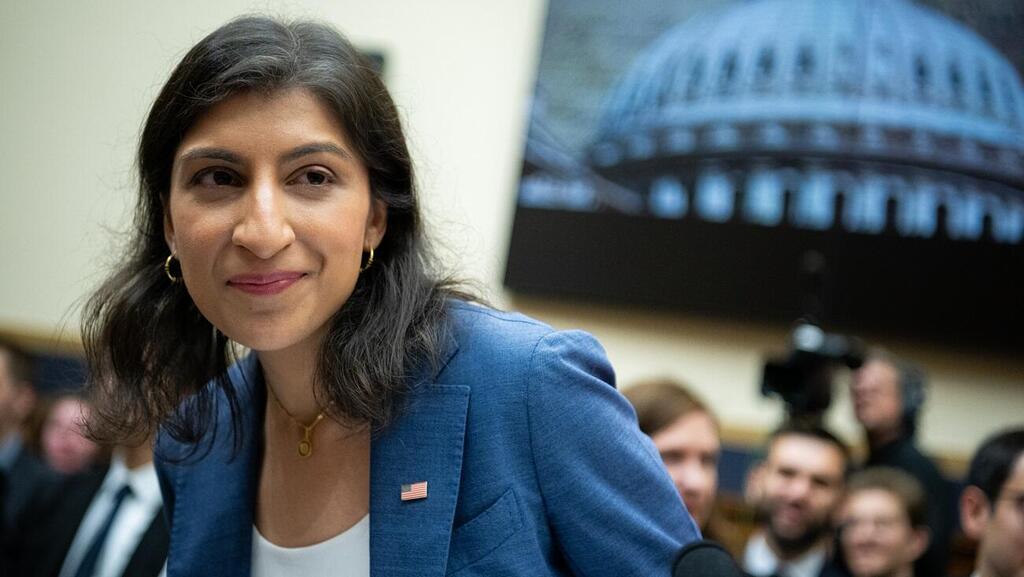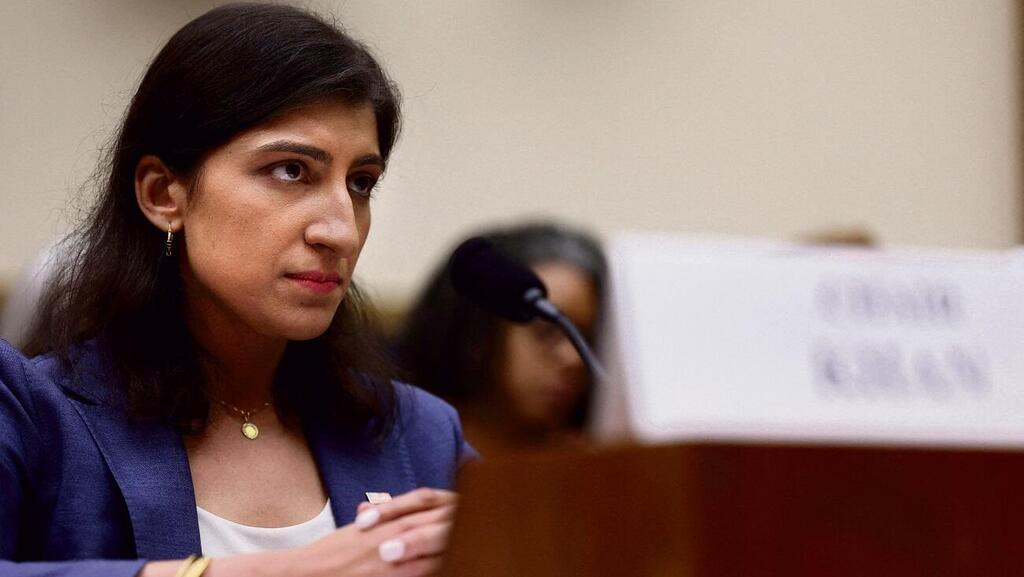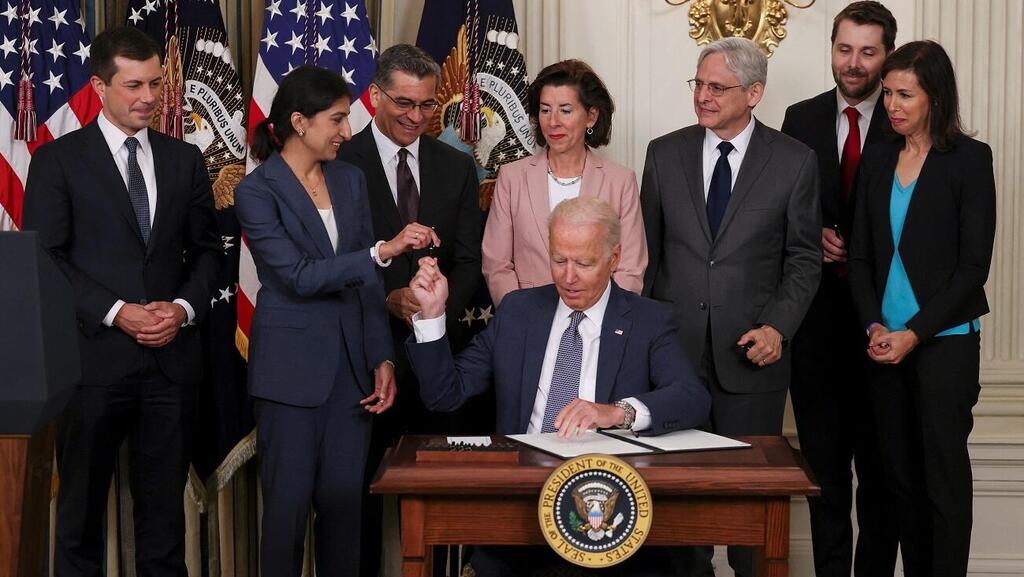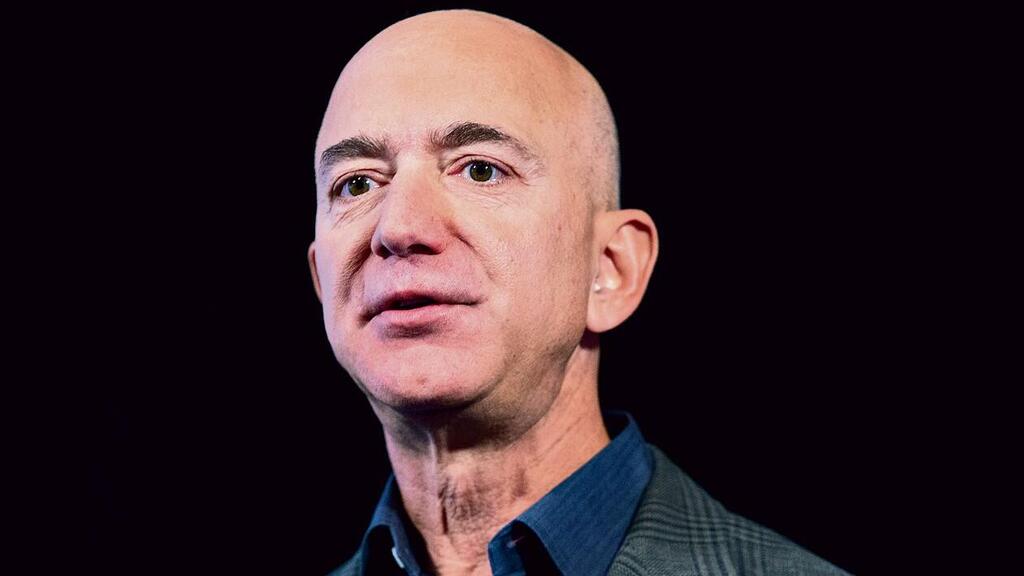Getting your Trinity Audio player ready...
When Lina Khan was just 15 years old, she embarked on a campaign against a Starbucks branch that restricted students from sitting there and working on their laptops. She decided to write an article about it in her high school newspaper. Starbucks did not respond to the published article but it was picked up by The New York Times, making Lina Khan known for the first time.
Read more:
Today, at the age of 34, Khan is one of the most influential figures in the U.S. government, serving as the chairperson of the Federal Trade Commission (FTC), the US federal trade watchdog. Her appointment by President Joe Biden in 2021 stunned the American business world. It was one of the most meteoric rises anyone can remember to a position of such power. However, it quickly became evident that Khan is not afraid of anything – not corporate giants, not the immense power of business in the United States, and not even billionaires with unparalleled influence.
4 View gallery


Lina Khan is one of the most influential figures in the U.S. government, serving as the chairperson of the Federal Trade Commission (FTC)
(Photo: EPA)
Khan has set her sights on tech giants like Amazon, Meta (formerly Facebook), Google and Apple, which have amassed immense power and dominated entire industries without competition. Last week, Khan's FTC filed a lawsuit against Amazon, accusing the company of violating antitrust laws. The government's lawsuit alleges that Amazon is a monopolistic company that has used unfair and unlawful tactics to maintain its dominance.
So, after Silicon Valley witnessed the summer-long battle between Elon Musk and Mark Zuckerberg, it appears that the real showdown may now be unfolding between Lena Khan and Jeff Bezos. She is a young public servant, and he is worth $150 billion.
After Silicon Valley witnessed the summer-long battle between Elon Musk and Mark Zuckerberg, it appears that the real showdown may now be unfolding between Lena Khan and Jeff Bezos
Khan was born in the United Kingdom to immigrant parents from Pakistan, and the family moved to the United States when she was 11 years old. In 2010, she graduated from the prestigious Williams College in Massachusetts and immediately developed an interest in competition law, the field of law that promotes or seeks to maintain market competition by regulating anti-competitive conduct by companies.
At the age of 26, Khan pursued the dream of thousands of young Americans: she began studying law at Yale University. Nearly everyone in her cohort specialized in exciting fields for a young and idealistic generation, but Khan chose to specialize in the mundane world of business antitrust law. As she sat in the library, she often learned on her own because hardly anyone else seemed interested in the field.
Two years later, while still a student, Khan published an article in the Yale Law Journal that not only transformed her life but could also revolutionize the American economy. Her 95-page document titled "The Broken Bargain in the American Economy" is already considered one of the most significant academic works in the modern era.
4 View gallery


Lina Khan's "The Broken Bargain in the American Economy" is considered one of the most significant academic works in the modern era
(Photo: Reuters)
In this groundbreaking work, Khan argued that the antitrust laws in the United States were fundamentally flawed. She contended that low prices could distort competitive behavior. For decades, American antitrust laws had operated under the "consumer welfare" standard, meaning that the government would take action against a company's anti-competitive practices only if consumers were harmed by rising prices. This approach allowed technology companies to effectively build de facto monopolies by offering services for free or at such low prices that no one else could compete with them.
During her confirmation hearings, Amazon launched an enormous army of lobbyists against Khan. "Khan claimed repeatedly that Amazon is guilty of antitrust violations and should be broken up," the company wrote in a 25-page complaint. Even Facebook argued that Khan couldn't be impartial. Throughout her career, Ms. Khan has consistently and publicly concluded that Facebook violated antitrust laws," the company said in a statement.
Despite the fierce opposition, Khan was confirmed by the US Senate with a surprising and overwhelming bipartisan majority. This was largely a result of the tension that had emerged in the political landscape regarding Big Tech. On the left, Facebook and Google were blamed for creating the conditions that led to Donald Trump's presidency, while on the right there were allegations of conservative voices being censored. Both sides found it appealing to appoint someone who could challenge these powerful companies.
In the two years since taking office, Khan has not had a single day of peace. Dozens of opinion pieces attacking her have been published in the Wall Street Journal. She faced demands for congressional investigations and accusations that she caused people to die by blocking mergers of pharmaceutical companies. In the first half of 2023, Amazon spent $10 million in its ongoing public relations battle against her.
4 View gallery


Federal Trade Commission chairperson Lina Khan and US President Joe Biden
(Photo: Reuters)
Khan remains undeterred. In the past two years, the FTC has accused Amazon of enrolling millions of consumers in its "Amazon Prime" subscription service without their consent and making it difficult for them to unsubscribe. In May of the same year, the agency announced a $5.8 million settlement with Amazon's security camera unit, Ring, over allegations that the cameras were used for customer surveillance. Amazon also agreed to pay a $25 million settlement after the FTC accused it of violating children's privacy by failing to delete recordings made by the virtual assistant, Alexa.
In the past week, the FTC asked a judge in Seattle "to free Amazon from its monopolistic control, to ban Amazon from the unlawful tactics it has employed, and to restore the lost promise of competition." In a statement released on the day of filing the lawsuit, Khan stated, "Amazon has utilized a system of punishment and coercion to maintain its monopolies unlawfully. The company exploits its monopoly power to enrich itself by raising prices and providing poor service to tens of millions of American families who shop on its platform."
Jeff Bezos built his fortune around the idea that the only thing that matters is keeping the customer satisfied. Amazon sells as many items as possible, as cheaply as possible, and delivers them to the customer as quickly as possible. Today, $40 out of every $100 spent on online shopping in the U.S. goes to Amazon. Lina Khan, however, has made her mark with an opposing view: that keeping the customer happy isn't the most important thing. Now, these opposing approaches are set to clash in the courtroom.
To understand why Khan's tenure as the FTC chair is so significant, we need to delve into the history of antitrust law in the United States. The Federal Trade Commission was established in 1914 with the explicit goal of combating monopolies. It was designed to have five commissioners, with no more than three from the same political party. Back in the day, this was a tool that the U.S. government genuinely used to rein in companies that had become too powerful. President Franklin D. Roosevelt, for example, repeatedly used antitrust laws to rein in Wall Street after the Great Depression.
4 View gallery


Amazon CEO Jeff Bezos built his fortune around the idea that the only thing that matters is keeping the customer satisfied
(Photo: EPA)
Like almost every prominent economic and social phenomenon in the United States today, the change began during the Ronald Reagan era, the most influential president of the last 40 years – whether for better or worse depends on who you ask. Under Reagan, the antitrust law was effectively buried, and the FTC became a toothless agency. The only thing that mattered was the price paid by consumers. As long as prices were low, Washington didn't care if a very small number of companies held all the power. This approach persisted until just two years ago. Facebook and Google, for instance, offered their services for free, and no one seemed to mind that they were essentially monopolies. Today, six out of the eight largest companies in the U.S. are tech companies.
Now Khan enters the picture, comparing the current situation to the end of the 19th century when a handful of companies dominated the railroad industry in the United States. "Today, it's the technology giants that provide the infrastructure for the digital age, a small group of people determining who can use that infrastructure and under what conditions," according to Khan.
In the case of Amazon, Khan alleges that the company has amassed a significant market share across a vast array of products and strangled competition. Her work gained tremendous viral attention, and she herself became a star. What the corporate giants failed to anticipate is that she would also become a real threat.
After completing her degree at Yale University, Khan wasted no time in teaming up with lawyers who fought against Facebook, becoming a central figure on a congressional panel on business restrictions and conducting a 16-month investigation into major online platforms. Biden appointed her as the FTC chair, a move drawing comparisons to Roosevelt – the president who was perhaps the last to challenge the wealthiest and most powerful individuals in the U.S. She became the youngest and most progressive person to assume this role in over a decade.
"As consumers, as users, we love the big tech companies," Khan told The New York Times, "but as citizens, as workers, and as entrepreneurs, we recognize that their power is troubling. We need a new vocabulary to address their dominance."
However, the journey to the courtroom should give Bezos a reason to feel somewhat hopeful. American judges tend to lean toward the capitalist ethos, typically siding with big businesses. Therefore, the U.S. government rarely engages in battles against large corporations. But when it does, the impact reverberates for years.
A quarter-century ago, the government secured a victory against Microsoft, which, while not breaking the tech giant's dominance, allowed thousands of start-up companies to flourish alongside it. One of those was Amazon. Another currently facing a lawsuit from the Department of Justice is Google. Amazon may be Khan's primary target, but the FTC, under her leadership, is aggressively pursuing other large tech companies, though not always with success. The agency couldn't block Microsoft's acquisition of the video game creator Activision Blizzard. And despite its ongoing battle against Meta, the parent company of Facebook, it failed to stop Meta from acquiring the virtual reality startup Within Unlimited.
"Five years ago, people would laugh at you if you questioned 'consumer welfare standard,'" says Konstantin Medvedovsky, a former antitrust attorney and a non-supporter of Lena Khan. "Now serious people are raising that argument in large conferences, and that's thanks to Lena. It's hard not to be somewhat impressed by what she's doing."

